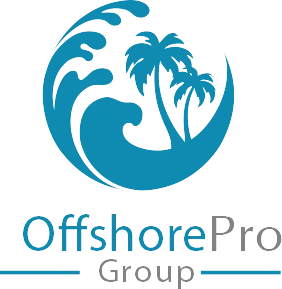Who Owns Offshore Companies?
An offshore company can be owned by either an individual or a legal entity. In the past, identifying the ultimate beneficiary of such structures was quite a challenging task. Yet, with the implementation of stricter international regulations and laws aimed at combating money laundering and tax evasion, the disclosure of beneficial ownership information is now mandatory. This makes it nearly impossible to keep the actual owner’s identity completely confidential. Yet, the question remains: who can be an offshore company owner?

How is an offshore company organized?
An offshore company is a legal entity registered in a jurisdiction that offers favorable tax conditions, high confidentiality, and minimum reporting requirements. While its specific structure may vary based on the laws of the incorporation jurisdiction, most offshore companies are set up the same way.
This is what a typical offshore company shall include:
- Shareholder: This can be an individual, a legal entity, a trust, or a fund. Nominee shareholders are also employed to maintain confidentiality.
- Director: The director has fiduciary duties. They make decisions in the company’s best interests. Besides, directors develop and implement strategic plans for the above entity.
- Company Secretary: Not all offshore jurisdictions require this position. When available, the secretary maintains corporate documentation, ensures regulatory compliance, and organizes shareholder as well as director meetings.
- Registered Agent: Most offshore companies must have a local registered agent who handles communication with governmental authorities in the incorporation jurisdiction.
Offshore company founders register their entity in the chosen jurisdiction. Its beneficial owners, who are the ultimate beneficiaries, are not always mentioned in official documentation. In some cases, the founder and the beneficiary may even be the same person.
Types of offshore company owners
As mentioned earlier, you will encounter various offshore company owners, including individuals, legal entities, trusts, funds, and partnerships. Let’s take a closer look at each type.
Individuals
Entrepreneurs and private investors often set up offshore companies to maintain confidentiality, pay less in taxes, and protect their assets.
Legal entities
Companies from different jurisdictions can also own offshore entities, especially in complex structures. These are typically used for tax optimization, asset protection, business diversification, and risk management.
Trusts
Trusts are potential offshore company owners as well. In this situation, they manage assets on behalf of beneficiaries. The trustee acts in the best interests of these ultimate beneficiaries.
Funds and partnerships
Partnerships or funds may also act as offshore company owners. In these cases, the offshore company is usually part of a broader investment strategy.
Nominee owners
Nominee directors and shareholders are often used to maintain confidentiality for the actual beneficiaries. In jurisdictions with public registers of owners and directors, nominees help keep the actual owners anonymous. While nominees may be listed as owners, they act in the best interests of the company’s ultimate beneficiaries, following their instructions.
Identifying offshore company owners
In March 2022, the Financial Action Task Force (FATF) introduced stricter global rules for beneficial ownership to prevent the misuse of offshore companies for illegal activities. These enhanced international standards of beneficial ownership help identify corrupt individuals, sanctioned persons, and those involved in money laundering and tax evasion. Complex offshore structures, trusts, and funds are often used to conduct criminal activities. Today, those attempting to use offshore entities for illegal purposes face greater challenges in maintaining anonymity.
Here are several methods to determine the actual owner of an offshore company:
- Public Registry: Many jurisdictions now have public registries where information on beneficial company owners is publicly available. This data can be requested by anyone, sometimes for a fee.
- Corporate Documentation Analysis: Reviewing the main corporate documents, e.g., the charter or articles of incorporation, is another way to reveal the owner. Minutes of the company’s shareholder and director meetings also provide valuable insights.
- Requests to Registration Agents: Registration agents do provide beneficial ownership data but only upon request from competent authorities or the public.
You can also search the Offshore Leaks database for the company information you need. Created by the International Consortium of Investigative Journalists (ICIJ), it contains information on over 810,000 offshore companies, trusts, and funds. Identifying the true owner may require you to analyze the ownership chain, which often involves multiple entity layers, including companies, trusts, and the like.
FYI: The Office of Foreign Assets Control (OFAC) website contains information about sanctioned beneficiaries.
Summing up
Offshore companies are entirely legal. They are practical tools for asset protection and risk diversification. You can also use them to enter new markets or enhance your confidentiality. These entities are owned mainly by individuals, companies, trusts, partnerships, or funds. Nominee services are also helpful to maintain confidentiality.
To identify the owner of a specific offshore structure, you can access public registries or use specialized services. Many jurisdictions only disclose beneficial ownership information upon request from competent authorities. This way, ultimate beneficiaries enjoy top anonymity.
Would you like to incorporate offshore? Message the Offshore Pro team right away!
